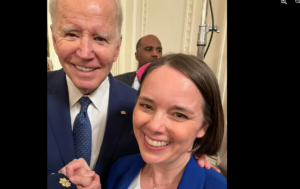By Jason Savage
Schools must not be safe spaces for killers. On this, people of all political stripes should agree.
At the same time, Maine is a unique state, with low crime rates and high gun ownership combined with hundreds of small populations spread across vast territory with declining school budgets and enrollment. Because of our geography, culture and economy it is difficult to find an easy alignment between other populations and our own to look for solutions to school security concerns. Whitefield and Caribou are not the same as Portland, just as Portland is not the same as Chicago or San Francisco. That said, I want to ask this simple question: If guns were banned tomorrow, would our children be any safer at school the next day?
In the wake of the horrific shooting in Parkland, Florida, here are a few ideas that may work for Maine to harden our schools as targets, but won’t give them the feel of fortified prisons or require a massive increase in federal government control.
Maine communities must re-engage and focus on some practical actions we can take.
Revolving Resource Officers
Everyone
knows the presence of law enforcement officers serves as a deterrent to
some criminals and those intent on committing atrocities such as mass
shootings. We know that in healthcare, prevention is key. It is no
different in protecting our schools and children.
While
many schools may not have the budget to employ a full-time resource
officer or armed patrol officer, it may be possible for districts to
pool resources and create a position for a resource officer to revolve
throughout several schools in the course of a week.
A 2012 report to the United States Senate from the National Association of School Resource Officers showed
that juvenile arrests in schools fell nearly 50% during the first major
expansion of school resource officers around the nation from 1994-2009.
Shared Law Enforcement Spaces
Many
Maine schools have space for a law enforcement officer to work in on a
part-time basis. Why not allow our state police, county sheriffs and
local police departments to work remotely from our local schools?
Whether the space is in a shared administrative area, a library, or other available space, our children would gain the added benefit of a law enforcement presence without the intrusion of armed security at the door.
Additionally, allowing or asking our law enforcement officials to use school parking lots for their patrol vehicles even when law enforcement officials were not present could serve as a deterrent to would-be attackers. Law enforcement professionals generally subscribe to the philosophy that having more visible patrol cars deter crime, and most of the arguments against using patrol vehicles as deterrents center on officer safety and public liability when an officer uses a patrol vehicle for personal use and is not in uniform. Those concerns do not come into play when the strategic purpose for the patrol vehicle in the parking lot is to suggest that an officer is present on school grounds.
Campus Realignments
In
some parts of Maine, there is no logical reasoning for the locations of
local police facilities, emergency personnel and our schools. Why not
seek realignment of these campuses so public safety and school campuses
are in closer proximity, when possible?
If there is one area where a criminal is likely to encounter resistance, that is the area they are most likely to avoid. We could gain the added benefit of reducing other unwanted activities around our schools, and in any other type of incident, emergency personnel are right on the scene to assist.
Maybe while we are at it, we could consolidate some of our government offices onto these same campuses and save some money.
Enhanced Community Police Involvement In Schools
Who is better trained than our teachers and trained law enforcement officials to spot warning signs among our troubled youth?
By instituting enhanced school and community programs that bring law enforcement officials into schools for activities and interactions with students in informal settings, schools gain the added benefit of security and assistance, and students (including those who may be lacking role models), and gain the benefit of role models and confidantes they previously did not have.
Think in terms of local
police officers helping organize intramural sports leagues, ultimate
frisbee tournaments, Minecraft competitions and music festivals, not
just substance abuse courses and other dry topics.
Some
might not like the cost of this, but we know taxpayer money can produce
a return on taxpayer investment–in this case the safe lives of our
children. In the long run, would we rather be paying our law enforcement
officers to interact with our kids in a meaningful way, or dealing with
a mass shooting?
To keep our children safe, we must acknowledge a one size fits all approach will not work. Some people don’t trust anyone but Washington, D.C., but to be successful we must place faith and trust in our local officials, they must step up to bat, and we do need to provide them with the resources to do their jobs.
Hoping for a one-size fits all approach to drop in from Washington is a recipe for nothing getting done–or worse. Our children’s lives are at stake, and because of that so is our state’s future. We can, should, and must take appropriate actions at the town, county and state levels to make our schools safer. We cannot leave it up to Washington.
We can do this. We are Mainers. Democracy requires engaged citizens. This is a matter we hope all political parties in Maine will agree on.
Jason Savage is executive director of the Maine Republican Party




